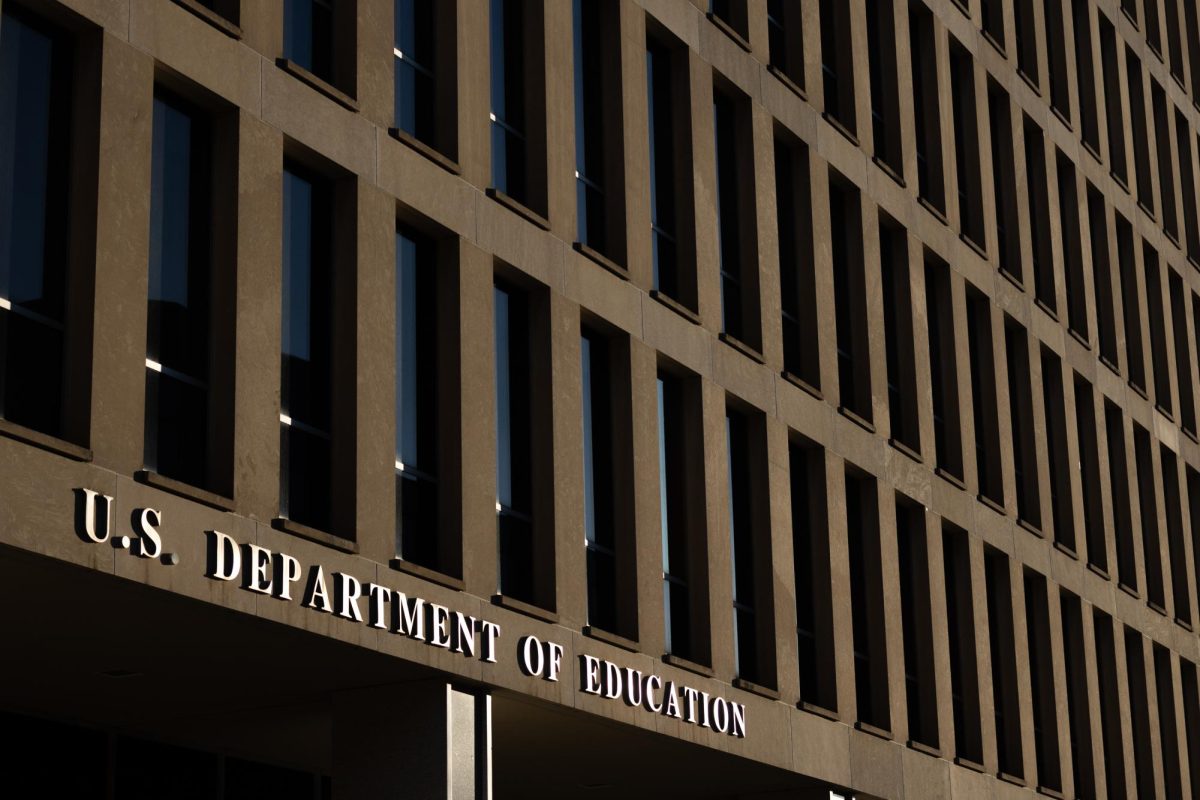University officials are reviewing Title IX policies after the Supreme Court ruled earlier this month that schools impacted by a lawsuit blocking 2024 regulations can still adopt changes that don’t conflict with the 2020 guidelines.
Attorneys general in 26 states have sued U.S. President Joe Biden’s administration over the last five months for the 2024 Title IX regulations they released in April, claiming the Department of Education overstepped its authority in forcing states to expand policies to include gender identity and pregnancy status as a basis for discrimination. A Kansas federal judge blocked the new policies in certain states in July and expanded the ban to include any school attended by someone who is affiliated with two conservative organizations — Young America’s Foundation and Female Athletes United — including GW.
The Supreme Court ruled on Aug. 16 that schools included in the lawsuit may choose to adopt policies that align with the 2024 ruling as long as they do not contradict the 2020 regulations. Universities that declined to implement the 2024 policies when the regulations took effect on Aug. 1 due to their involvement in the lawsuit can now revisit Title IX policy changes, per the ruling.
A University spokesperson said the Title IX office is in the process of reviewing its existing policy to make amendments that align with the 2024 regulations but do not conflict with the 2020 guidelines.
“While subject to the injunction, schools such as GW must comply with the 2020 Title IX regulations,” the spokesperson said in an email.
The University’s Title IX website posted an update on July 25 stating that the University’s 2020 policy would remain in effect until the injunction is “lifted or narrowed.” The spokesperson declined to comment on what portions of the 2024 regulations, if any, officials will adopt for the University’s Title IX policy following the Supreme Court ruling.
“GW’s current Title IX Sexual Harassment and Related Conduct Policy will remain in effect until further notice,” the July update reads.
The spokesperson also declined to comment on how many students who are affiliated with the Young America’s Foundation or Female Athletes United are currently enrolled at the University. According to the lawsuit, people are considered to be affiliated with the organizations if they are members or children of members.
The lawsuit also includes GW peer schools like American, George Mason and Georgetown universities; and University of Maryland, College Park and The Catholic University of America. These schools are also not located in the 26 states that filed lawsuits, but are attended by members or children of members of the Young America’s Foundation and Female Athletes United.
Experts in Title IX policy said the injunction leaves Title IX offices across the country caught between wanting to address complaints that fall under the new definitions of discrimination and complying with the injunction.
S. Daniel Carter, the president of Safety Advisors for Educational Campuses, LLC — an organization that assists universities in complying with federal regulations like Title IX — said the legal basis of the lawsuit is the Administrative Procedure Act, which sets standards for federal regulations. Carter said states are suing on the basis that the Department of Education does not have the authority to put out a regulation of this scope.
“They’re not saying in court ‘This is a bad policy, overturn it,’” Carter said. “They’re saying, well obviously they think it’s a bad policy, but the legal grounds are ‘We think the Department of Education lacks the authority to issue this rule.’”
Carter said the new regulations sparked lawsuits from conservative states and organizations because of the inclusion of gender identity as a basis of sex discrimination. He also said that this case could make its way up to the Supreme Court given the scope of institutions it affects.
“I know that there are efforts to expedite hearing of these cases,” Carter said. “But when you’re talking about federal court processing, expediting, unless it is a true life or death type of emergency, can mean months, if not still, years.”
Adrienne Mathis — executive director of Title IX Solutions, an organization that consults Title IX administrators about complying with regulations — said schools can use methods other than Title IX complaints to address instances of discrimination.
“We have other policies to address inappropriate conduct, discrimination or bullying that maybe falls outside of Title IX if they say it does,” Mathis said. “But we can perhaps use our code of conduct to still address those types of instances.”
Mathis said she recommends that Title IX administrators not get overwhelmed by legal disputes and “lose sight” of the overall purpose of Title IX, which is to protect students from discrimination.
“It’s easy to get caught up in these regulatory, chaotic moments, but I encourage all Title IX offices and all students to not forget the heart is that we want to have a safe campus community where we don’t have discrimination on the basis of sex,” Mathis said.
The Student Government Association issued a survey in July asking students for feedback on changes to the hearing structure for Title IX cases in accordance with the April 2024 policy. The survey asked respondents questions about whether or not participants should be required to keep their cameras off during hearings, and offered two sets of options for the structure of the “complaint system.” Options for the hearings included adding a separate professional to serve as the decision-maker in cases, or holding a separate hearing with a hearing officer from the Title IX office.
“I think there has to be a set in stone model,” SGA President Ethan Fitzgerald said. “So we kind of heard varying feedback but overall the consensus was that neither system seems perfect.”
Fitzgerald said the Title IX office will use input from the survey and further conversations with GW Reproductive Autonomy and Gender Equity, the SGA and GW Students Against Sexual Assault to help structure what Title IX hearings will look like going forward. Fitzgerald said future plans for meetings between the SGA and the GW Title IX office are “stalled” until further action is taken with the injunction.
“We’re all kind of having a conversation about what is the best way forward to make sure that you know, there’s accountability, there’s fairness and that everyone leaves the process, obviously difficult either way, feeling as good about the outcome as possible,” Fitzgerald said.





